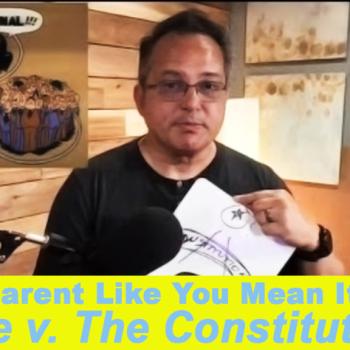As we start reading the Old Testament book of 1 Samuel, we meet Elkanah and his two wives, Hannah and Peninnah. Now, right off the bat, we are hit with the question, “Why did God allow people of Israel who seemed to be righteous have multiple wives?”
Well, it wasn’t the way things should have been done, but it is the way things were often done. This also offers us a clue: A man – for the most part – only had multiple wives if he was a wealthy person. So Elkanah was most likely a very wealthy and respected man among his people. Think about it – at the very least, he was wealthy enough to be able to afford to feed two families.
The problem was that one of his wives – Hannah – was barren and was unable to . It’s widely held that Hannah was Elkanah’s first wife, since she is listed first in 1 Samuel 1:2, so for her to endure a social hit like being continually unable to bare children was incredibly burdensome for her.
Now, if you’ve studied the Old Testament at all, you may recall other situations where a man had more than one wife and all the problems that this caused: Abraham and Sarah and Hagar; Jacob and his many wives and their children who were often literally at each other’s throats… the pattern repeats itself in 1 Samuel: Peninnah, who was able to have children, received a social status that Hannah did not and she rubbed Hannah’s nose in it.
In 1 Samuel 1:5-6 we read:
And though he (Elkanah) loved Hannah, he would give her only one choice portion because the Lord had given her no children. 6 So Peninnah would taunt Hannah and make fun of her because the Lord had kept her from having children.
So we see that even though their family construct wasn’t the way it was supposed to be by God’s design, God is still involved.
Now, this is a difficult concept to play out, because it’s easy to include God in our reports of all the good things that come our way and it’s easy to believe that He is involved when a blessing falls upon us. When good thing happen, we automatically thank God – and well we should. But is God also involved in life’s difficult circumstances?
Absolutely, He is.
We need to wrestle with that.
God is going to allow us to come into seasons of our lives that will stretch us, grow our faith, and present opportunities for us to respond to Him.
Job famously said to his wife after being stricken with extreme losses of his property, wealth, children, and his health, “Should I accept Good things from God and not bad?”
You see, Job knew, and we should be aware, that God is more interested in our growth in Him than our receiving blessing after blessing.
So, we see this underlying theme right away that this pain and anguish of Hannah’s is going to grow so deep that it will actually draw her closer and closer to God.
Let me repeat: The pain that God caused Hannah to endure is going to become so great that it’s going to drive her closer to God.
That’s what God wants.
He wants to come close to us and be our comforter. He wants to be the one to take care of us in the midst of our pain.
But we have to allow that to happen.
So, classically, Elkanah tries to solve Hannah’s problems by giving her things. But the one thing she really wants is the one thing he can’t give her. It’s in God’s hands.
One year, after the family went to Shiloh for their sacrificial meal, Hannah went to the Tabernacle to pray. It was there that Eli, the High Priest, saw her in her deep anguish, crying bitterly as she prayed to God.
And she made this vow:
“O Lord of Heaven’s Armies, if you will look upon my sorrow and answer my prayer and give me a son, then I will give him back to you. He will be yours for his entire lifetime, and as a sign that he has been dedicated to the Lord, his hair will never be cut.”
I find this interesting. There are only two man characters in the Old Testament who are Nazarites: Samuel and Sampson. And the books of Samuel and Judges (where we read about Sampson) have a lot of overlay. In addition to sharing the umbrella themes of leadership and kingship, their narratives also combine together.
So, think of Samuel as the “Anti-Sampson”. Sampson was a judge who should have been fulfilling his spiritual responsibility; yet he did almost everything wrong. He was largely self-serving and does a poor job of leading the Israelites.
In the life of Samuel, we see almost the exact opposite. He does everything for the Lord. He lives righteously and remains close to God.
Another thing to notice about Hannah’s vow is that she got to the point where she was willing to give her most cherished thing – a son – back to the Lord.
And I have to say this: God is not as interested in us following rules or even reading our Bibles every morning as much as He is with getting to the deepest part of us and the giving over of ourselves to Him.
So, as Hannah is there crying and praying at the Tabernacle gate, Eli sees her and thinks that she’s drunk.
Hannah responds:
15 “Oh no, sir!” she replied. “I haven’t been drinking wine or anything stronger. But I am very discouraged, and I was pouring out my heart to the Lord. 16 Don’t think I am a wicked woman! For I have been praying out of great anguish and sorrow.”
17 “In that case,” Eli said, “go in peace! May the God of Israel grant the request you have asked of him.”
18 “Oh, thank you, sir!” she exclaimed. Then she went back and began to eat again, and she was no longer sad.
As we continue to read that, in fact, Hannah did have a son and brought him back to the Tabernacle when he was about three or four-years-old and gave him to the priest as she kept her vow to God, saying:
27 I asked the Lord to give me this boy, and he has granted my request. 28 Now I am giving him to the Lord, and he will belong to the Lord his whole life.” And they worshiped the Lord there.
Amazing. Even as she is about to leave her precious son, whom she would most likely only visit once a year, she worshipped the Lord because He kept His promise and she kept hers.














